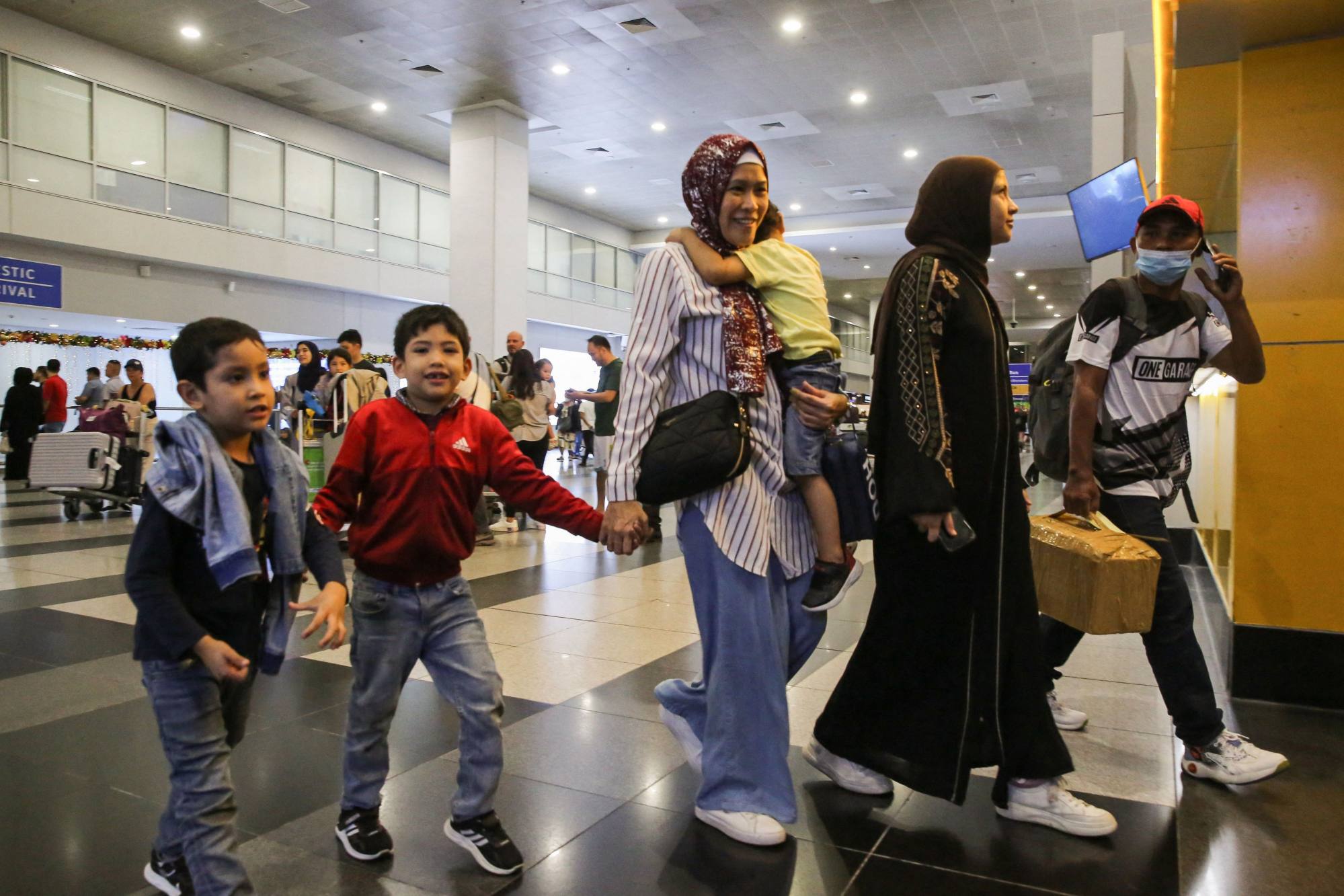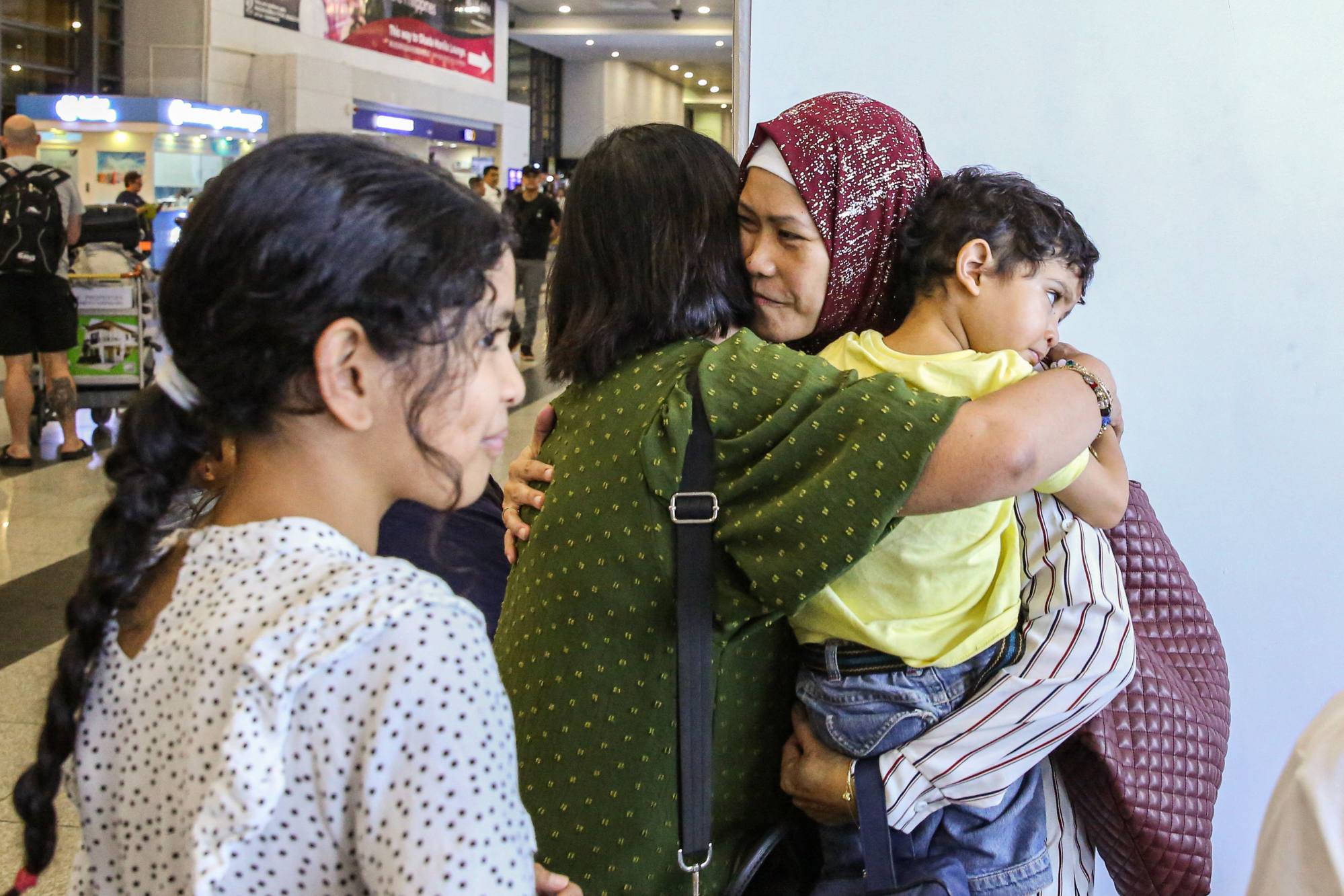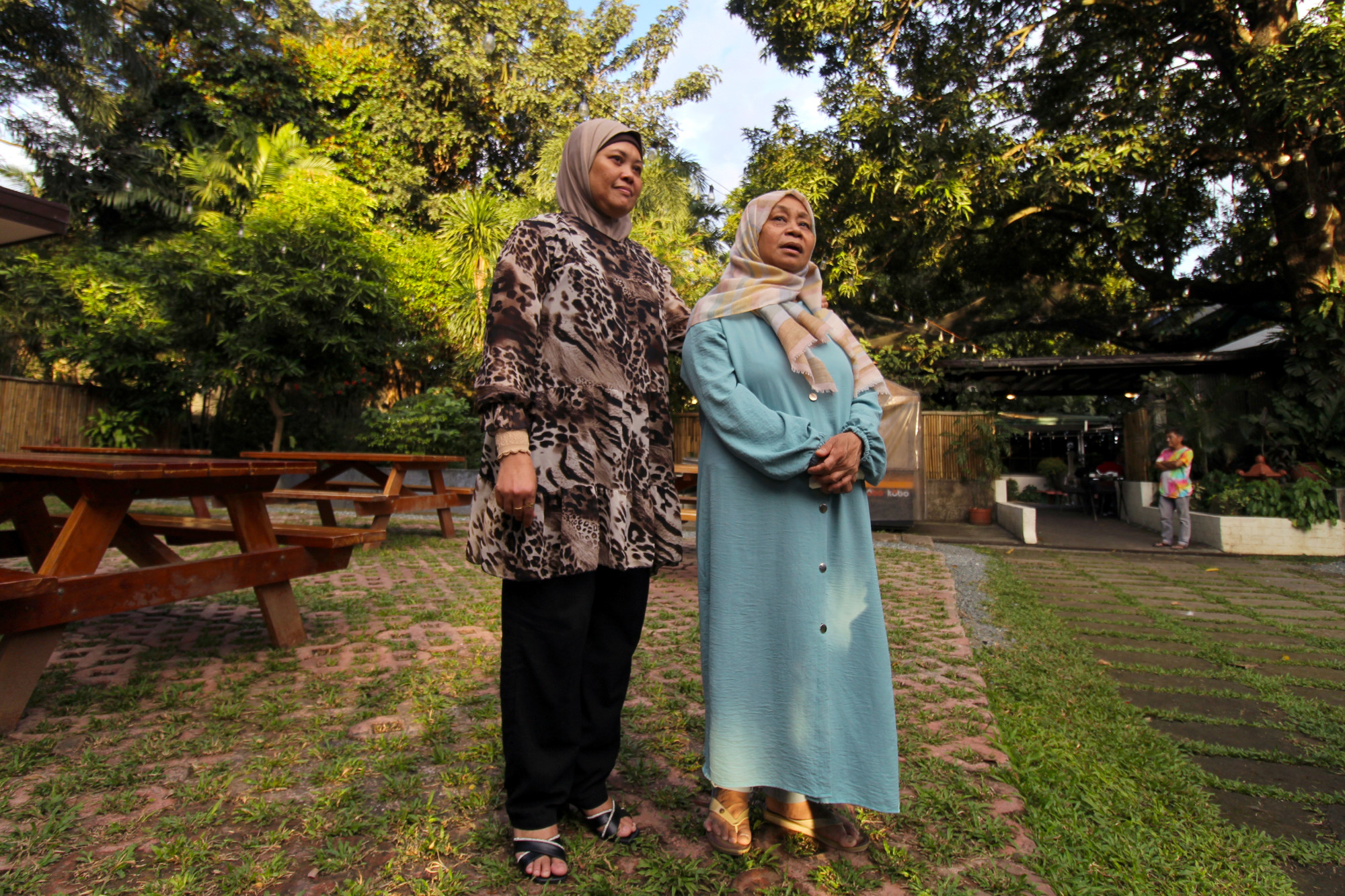
Philippine returnees from Gaza ‘feel abandoned’ as government aid dries up, leaving families homeless
- The Philippines has been accused of ‘neglect’ for giving repatriated Filipino-Palestinian families limited funds and only a three-day hotel stay
- Activists say Manila must not only support their well-being and reintegration but class this group as refugees, amid fears they will be ‘tagged as terrorists’
They will only be allowed to stay with the university – an arrangement brokered by NGOs – until December 21, before the holiday period. Beyond that, there are no prospects.
“They feel abandoned,” said Dr Edelin Dela Paz, head of the Philippine-Palestine Friendship Association (PPFA), which is among organisations involved in helping the families seek shelter at UP.
This Week in Asia has reached out to the Department of Foreign Affairs (DFA) for comment.

From November 7-14, the DFA repatriated 102 Filipinos from Gaza to Manila. Joined by their Palestinian spouses and extended relatives, many of the families arrived in batches.
The families alleged that they were promised more permanent shelter. As they struggled to find places to rent or reconnect with old relatives after living in Gaza for so long, civil society groups stepped in.
Amirah Lidasan, spokeswoman for Sandugo – a broad alliance of minorities and indigenous peoples, including the Filipino Islamic community – urged the government to protect the repatriates and craft long-term plans for their protection as the war will not end any time soon.
“The government responsibility did not end with repatriation. Their rights as refugees need to be recognised,” Lidasan said. “How will they reintegrate if they can’t even find a place to stay, and have no assurances about their status in the country?”

The UP Academic Union has been facilitating donations for the families and helping them with their everyday needs. It also works the PPFA and other groups to procure paperwork, as most do not have any passports or identification documents.
Various university and civil society organisations have established a “solidarity centre” while “persuading the UP administration to extend its resources to the refugees”, the Academic Union’s Kit Kwe told This Week in Asia.
Dr Dela Paz said the government response had been slow and short-sighted. “It’s all talk. We don’t see them here. We cannot do everything. This government needs to step up and support the refugees,” she said.
In early November, DFA Undersecretary Eduardo De Vega also gave assurances that the government would support the repatriates. However, he noted that they were “not coming home for good – they will most likely return to Gaza once the situation has cleared”.

One of the returnees, Revelina*, 62, said she was grateful the government helped her family flee Gaza. However, she said after their stay at a Manila hotel, they were stranded in the lobby, frantically calling up anyone who could take them in.
According to Revelina, Philippine embassy officials in Jordan had promised that “someone would take care of us when we reached Manila. We were told to expect some place to stay”.
Fellow returnee Annel*, 51, had lived in Gaza with her Palestinian husband and seven children for the last 26 years. While they had endured periodic conflicts, the intensity of the recent bombings – which wounded one of her sons – prompted her to seek repatriation for the first time.
“Our home would usually be damaged. But this time around, the bombings were too much. When we left, the bombs left only half of our home standing,” she told This Week in Asia.
Philippine nurse on surviving the onslaught in Gaza: ‘I smelled rotten flesh’
Like Revelina, she said the Philippine government had pledged to find shelter for her and 15 relatives. But in Manila, far from her hometown of Zamboanga and from any living relatives, she struggled to find a flat that would accept all of them as tenants.
“The money we were given ... would have lasted us two to three months, bouncing around hotels and paying for basic expenses,” she said.
Both Revelina and Annel, along with their families, are among those staying at UP.
“The government’s position on the conflict is reflected in its neglect of the refugees,” Lidasan said. “They have blood on their hands for backing the illegal occupation and bombing. That includes the blood of those who have been displaced and lost so much.”
*Full names withheld at their request.

